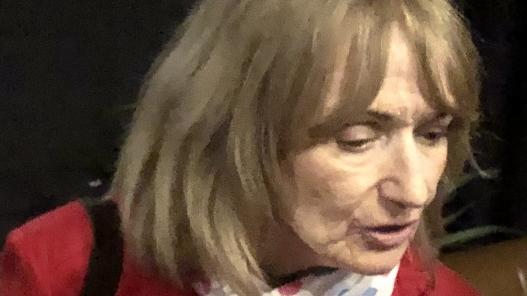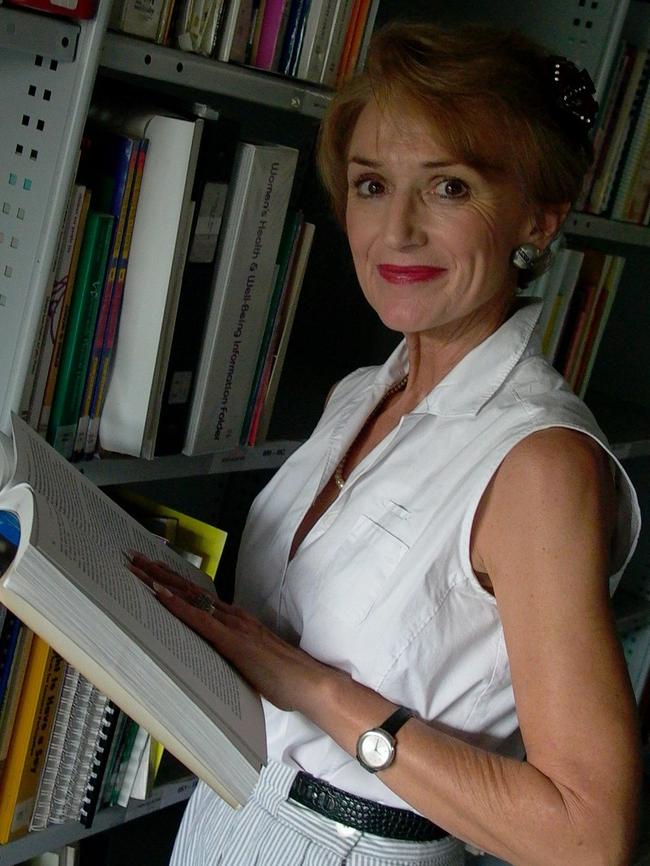Woman jailed for murdering mum says she was ‘oppressed’ during police interview
A woman found guilty of murdering her mother by smothering her with a cushion says her conviction should be overturned as she was ‘oppressed’ in a police interview played to the jury.

Police & Courts
Don't miss out on the headlines from Police & Courts. Followed categories will be added to My News.
A WOMAN jailed for smothering her mother to death with a cushion says she was harangued in a police interview, and that her conviction should be lifted.
Natalie Maher, 49, was found guilty in November last year of the October 2019 death of her Launceston mother, Veronica Corstorphine, and jailed for a maximum of 23 years.
Ms Corstorphine, 71, who was active with the Labor party in Launceston, had been variously described as “phenomenally clever” and “beautiful, kind and vivacious”.
But Maher couldn’t have felt more differently, and motivated by a “long-held personal antagonism”, was found guilty of murdering her septuagenarian mother, perhaps in a fit of passion or under the influence of alcohol.
Ms Corstorphine’s body was not found until weeks later, by which time Maher had returned to Western Australia in possession of her mother’s $12,000 in savings, items of her jewellery and her computer tablet.
On Tuesday, Maher appeared before the Court of Criminal Appeal, arguing her conviction should be overturned, claiming she was subjected to a video police interview that should have been excluded at trial.
Maher’s lawyer Kim Baumeler argued elements of the interview were “oppressive”, including an instance in which the policeman “threatens” to show her an image of her mother’s decomposed body.
“It’s clearly improper but it’s got to be more than that. It’s got to have caused an effect,” Justice Stephen Estcourt said.
A recording of the interview with Detective Acting Inspector Bob Baker was played to the court, in which Maher denies killing her mother amid a range of other accusations, like ransacking her bedroom for valuables or taking money from her bank account.
“You’ve got good answers at times, you’re an intelligent woman, I can see that. But you’re lying to me,” Detective Acting Inspector Baker says.

“You’ve told me some lies, I can prove those lies. You’ve given me no explanation, none at all.
“Something’s happened between you and your mother. Maybe it’s 46 years of being treated badly … It may be you were pushed to that point where you couldn’t take anymore. But please, tell me.”
Detective Acting Inspector Baker also asks Maher if she’s a Christian and if she would swear on her kids’ lives she was telling the truth and hadn’t “broken one of the commandments – thou shalt not kill”.
“The constant questioning, the constant suggestion of lies … all of those things ultimately are oppressive,” Ms Baumeler argued.
“It’s the probing and the disbelief.
“It’s the undermining of the right to silence, in my submission, and the continuation of the probing and calling the appellant a liar.”
Justice Estcourt suggested to Crown prosecutor John Ranson the last part of the interview was “just a harangue”.
Mr Ransom agreed it was “over the top” and not an “ideal” approach, but that it hadn’t led to an outcome that was not admissible, and there had been no miscarriage of justice.
Maher’s legal team also argued the expert evidence of forensic pathologist Donald Ritchie, which ruled out suicide, should have been excluded from the trial.
Justices Estcourt, Gregory Geason and Michael Brett reserved their decision to deliver at a future date.





